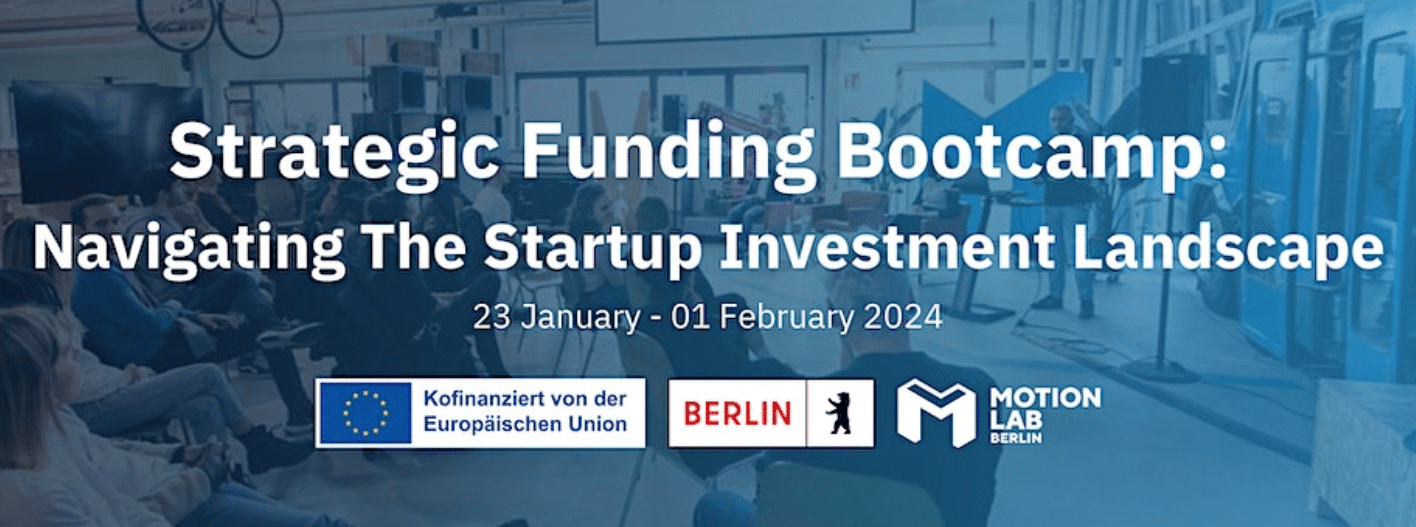My Secret Weapon: How I Found the Money to Kickstart My Tech Career (Bootcamp Funding Explained!)
I remember sitting there, staring at the bootcamp website. The sleek design, the success stories, the promise of a whole new career in tech – it all felt incredibly exciting. Then I scrolled down to the tuition fees. Oof. The numbers felt like a punch to the gut. "$15,000? $20,000? More?!" My heart sank faster than a lead balloon.
For a moment, I thought my dream was dead in the water. I wasn’t rich, I didn’t have a secret stash of cash, and the idea of taking on more traditional debt after college wasn’t exactly thrilling. But the dream of a new career, of building cool things, of finally feeling like I was on the right path – it was too strong to just give up.
So, I did what any determined (and slightly panicked) person would do: I started digging. I researched, I asked questions, I devoured every blog post and forum discussion I could find about how people actually paid for these things. And guess what? I found out there are a ton of options out there, options I never even knew existed!
I’m here to tell you, it’s possible. I did it, and you can too. Let me walk you through the landscape of bootcamp funding, just like I wish someone had walked me through it when I was starting.
The Big Question: Why is Bootcamp Funding Such a Hot Topic?
Before we dive into the "how," let’s quickly touch on the "why." Bootcamps offer a fast, intensive path to in-demand skills, especially in tech. Think coding, data science, UX/UI design. They can genuinely transform your career in a matter of months, often for less time and money than a traditional four-year degree.
But even if it’s "less" than university, it’s still a significant investment. Most people don’t have several thousand dollars just sitting around. That’s where funding options become your best friend. They bridge the gap between your ambition and the cost, making that career pivot a reality.
Option 1: The Classic Route – Student Loans (But Not Always What You Think)
When I first thought "student loan," I pictured my old university loans – the long application process, the federal forms, the whole nine yards. For bootcamps, it’s a little different, and often much more tailored.
- How it works: Many bootcamps partner with specific lenders (think Climb Credit, Ascent Funding, or even some local credit unions) that specialize in vocational training loans. These aren’t always your traditional federal student loans; they’re often private loans designed specifically for shorter, career-focused programs like bootcamps.
- My take: This was one of the first avenues I explored. The process was surprisingly straightforward. You apply directly through the lender or the bootcamp’s recommended link. They’ll look at your credit history, and sometimes your income potential after the bootcamp.
- Pros:
- Predictable payments: You usually get a fixed interest rate and a clear repayment schedule.
- Covers full tuition: Often, these loans can cover the entire cost of the bootcamp.
- Immediate access to funds: Once approved, the money is typically sent directly to the bootcamp.
- Cons:
- Interest accrues: Like any loan, you’ll pay interest, increasing the total cost.
- Credit score matters: A good credit score can get you better rates; a lower one might make it harder or more expensive.
- Repayment starts relatively soon: Sometimes repayment begins a few months after graduation, whether you have a job or not.
Option 2: The Game Changer – Income Share Agreements (ISAs)
This one felt almost too good to be true at first, but it’s a fantastic option for many. An ISA is like a handshake deal with the bootcamp: they invest in you, and you pay them back only when you land a job making above a certain salary threshold.
- How it works: Instead of paying tuition upfront, you agree to pay a percentage of your future income for a set period once you start earning above a minimum salary. For example, you might agree to pay 10% of your salary for 24 months, but only if you’re making over $40,000 a year. There’s usually a cap on the total amount you’ll ever pay back, ensuring you don’t pay forever.
- My take: This was a huge relief for me. The idea that the bootcamp only gets paid if I succeed really aligned their goals with mine. It removed a massive amount of financial pressure during the program itself.
- Pros:
- No upfront costs: Seriously, zero tuition until you’re employed and earning well.
- Bootcamp incentive: The bootcamp has a vested interest in helping you find a good job because that’s how they get paid.
- Built-in safety net: If you don’t find a job or your salary drops below the threshold, your payments pause.
- No interest (usually): While there’s an "effective interest rate" in how the cap is calculated, it’s not traditional interest.
- Cons:
- Long-term commitment: You’re committing a percentage of your income for a few years, which can feel like a lot.
- Total repayment can be higher: Depending on your future salary, you might end up paying back more than the sticker price of the bootcamp.
- Not all bootcamps offer them: You’ll need to check if your chosen program has an ISA option.
Option 3: The Gift of Opportunity – Scholarships and Grants
"Free money!" That’s what I called scholarships and grants. These are funds you don’t have to pay back, usually awarded based on merit, need, or specific demographics.
- How it works: Many bootcamps offer their own scholarships, often for underrepresented groups in tech (women, minorities, veterans, etc.), or for those demonstrating exceptional potential. Beyond the bootcamps themselves, there are external organizations that provide grants for tech education.
- My take: I spent hours digging for these. It felt like a treasure hunt, and while I didn’t get a full ride, I did secure a small grant that helped offset some living expenses during the program. Every little bit helps!
- Pros:
- No repayment: This is the biggest pro – it’s literally free money.
- Reduces overall cost: Even a small scholarship can make a big difference.
- Encourages diversity: Many scholarships aim to make tech more inclusive.
- Cons:
- Highly competitive: Everyone wants free money, so applications can be tough.
- Time-consuming application process: You’ll likely need to write essays, get recommendations, and demonstrate your passion.
- May not cover full cost: Many are partial scholarships.
Option 4: The DIY Approach – Savings & Part-Time Gigs
While I didn’t fully self-fund, I know people who did. If you have some savings tucked away, or if you can work part-time (before or even during the bootcamp, if the schedule allows), this is a debt-free path.
- How it works: You pay the tuition out of your own pocket. Simple as that.
- My take: Even if you can’t cover the entire tuition, putting some of your own money down can reduce the amount you need to borrow, saving you on interest in the long run. It also shows incredible commitment!
- Pros:
- No debt: The best part – you walk out of the bootcamp debt-free.
- Full control: No repayment terms or income share agreements to worry about.
- Cons:
- Requires existing capital: Not everyone has thousands of dollars readily available.
- Sacrifice: You might need to make significant lifestyle changes to save up.
Option 5: Employer Sponsorship (A Hidden Gem!)
This wasn’t my path, but it’s brilliant for some. If you’re currently employed and your company is looking to upskill its workforce, they might be willing to pay for your bootcamp.
- How it works: You propose the idea to your employer. Explain how the skills you’ll gain will directly benefit the company. They pay for your tuition, often with an agreement that you’ll stay with them for a certain period after graduation.
- My take: This is a win-win. Your company gets a more skilled employee, and you get free training. It’s definitely worth exploring if you’re in a role where new tech skills would be valuable.
- Pros:
- Zero personal cost: Your employer foots the bill.
- Job security: You often return to your current company with enhanced skills.
- Cons:
- Company commitment: You might be locked into working for that company for a specific duration.
- Not all companies offer it: Depends on your employer’s policies and budget.
My Personal Takeaways & Tips for Your Funding Journey
Alright, so you’ve seen the options. Now, here’s my advice, forged in the fires of my own funding quest:
- Research is Your Best Friend: Don’t just pick the first option. Look into all the funding choices offered by the specific bootcamps you’re interested in. Their websites are usually pretty clear about this.
- Compare Offers: If you get approved for a loan and an ISA, compare the total repayment amount, the terms, and the flexibility. Sometimes, an ISA might seem more expensive on paper but offers crucial peace of mind during your job search.
- Don’t Be Afraid to Ask: Reach out to the admissions or finance department of the bootcamp. They are there to help! Ask about hidden fees, payment schedules, and what their alumni typically choose for funding.
- Read the Fine Print (Seriously!): Whether it’s a loan agreement or an ISA contract, understand every single clause. What happens if you drop out? What’s the interest rate? What’s the salary threshold for an ISA?
- Talk to Alumni: If possible, connect with people who have graduated from the bootcamp. Ask them how they funded their education and what their experience was like.
- Budget for Living Expenses: Remember, tuition is just one part of the equation. You’ll also need money for rent, food, transport, and maybe a new laptop. Factor these into your overall financial plan. If you’re doing an intensive, full-time bootcamp, you might not have time for a job.
- Consider a Hybrid Approach: Maybe you use some savings, get a small scholarship, and then take out a loan for the rest. Mixing and matching can sometimes be the most effective strategy.
Don’t Let the Price Tag Be the End of Your Dream
That initial sticker shock is real. It can feel overwhelming, almost impossible. But I’m living proof that with a bit of research, a lot of determination, and an understanding of the available funding avenues, you absolutely can make that dream of a tech career a reality.
The investment you make in yourself now, whether it’s through a loan, an ISA, or a scholarship, is an investment in your future. It’s an investment in new skills, new opportunities, and a career that can truly excite you.
So, take a deep breath. Start exploring those options. Your future self, building amazing things and loving their job, will definitely thank you. Go get ’em!



